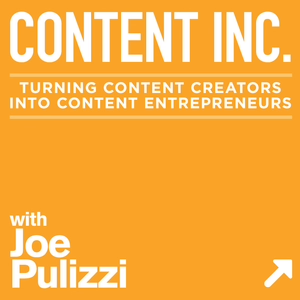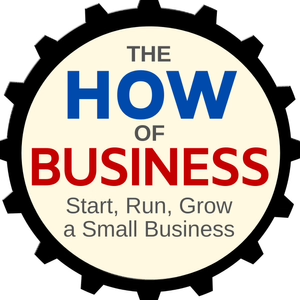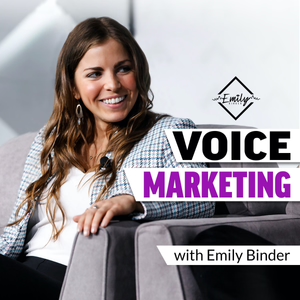
5. Accounting for Freelancers
06/27/19 • 59 min
Today I'm super stoked to be joined by my accountant Susan. Susan Watkin is a recognized and sought-after accounting educator, small business advisor, and start-up strategist. Working closely with business owners in all phases of their business life-cycle, Susan strives to help those owners take their businesses to whatever level they want to reach.
In her approachable style, she’s upfront and pulls no punches when it comes to the reality of small business finance and all that it entails so that those she works with are given the tools for their future success. Susan is proud to be recognized as a leader in digital accounting technology, as well as holding a position as a trainer and writer for Intuit Canada, and part-time professor at both Mohawk and Canadore College in Ontario.
Welcome Susan!
PD: Please note that all the information we are covering in this episode relates to Canadian Freelancers. Some of the major concepts can be translated to the US and beyond, but just keep in mind where our area of focus is.
Here's the following topics we dive into, and questions we have answers for:
Interview Questions Susan Watkin The State of Finance Questions:
2:23 -- About Susan, what she does, who she serves and the services she offers.
Interview Q's
4:30 -- When you work with Freelancers and small business owners, what is their typical level of knowledge on finances, and do you think the school system is lacking in that area, given the rise of the “gig economy”?
Specific Freelancing Questions:
6:55 -- SALES TAX: In Canada, when a person first starts out as a sole prop, do they need charge pay tax? If not, should they opt in to paying right away, and what are the advantages of that?
12:35 -- REMOTE WORK: Since many people are working remotely, we often work with people in different provinces and across borders. Who do we charge tax to, and how much?
19:17 -- INTERNATIONAL CLIENTS: Being remote, there are many times that we deal with US customers. Is it ok to charge in another currency?
23:22 -- EXPENSES: Let’s talk about “write-offs”. Can you clarify what a “write off” is? Because many people believe that it’s free money that you get back from the government. What are some major misconceptions about expenses?
27:45 -- CRAZY EXPENSES & AUDIT POTENTIAL: What are the allowances of expenses when just starting out, and what’s the craziest thing someone has tried to justify expensing?
31:50 -- INCOME TAX: As a general rule, do you have a guideline of how much of your sales you should put aside in the expectation of paying it for tax?
37:05 -- INCORPORATE VS SOLE PROP: People most will start off as a sole prop, but as they grow will consider incorporation. Is there a general guideline on when you should start to consider that? I know each case is different, but when should you start the conversation?
44:55 -- COMBATTING FINANCIAL OVERWHELM: For people who are overwhelmed by finances and stressed out about numbers, what advice would you give to help them stay on top of their cashflow?
50:58 -- STARTING OUT: What’s the 2 major pieces of advice you would give to someone starting from scratch (I’ll also add a couple of my experiences from a Freelance perspective)
53:46 -- INVOICING SOFTWARE: Finally, for a Canadian solo-preneur, is there a bookkeeping/online invoicing program you would recommend, also do you need one right out of the gate? (you can add referral links if you have them)
Susan has also given us a wealth of resources. Here is everything mentioned in the episode:
Free webinars/tutorials for small businesses
https://quickbooks.intuit.com/ca/tutorials/webinars/
For accounting/invoicing software:
https://quickbooks.intuit.com/ca/pricing/
GST/HST Rulings:
Startup Canada:
Find Susan here: susanwatkin.ca and Watkin-sbs.ca
Twitter: https://twitter.com/WatkinSBS
Hosted on Acast. See
Today I'm super stoked to be joined by my accountant Susan. Susan Watkin is a recognized and sought-after accounting educator, small business advisor, and start-up strategist. Working closely with business owners in all phases of their business life-cycle, Susan strives to help those owners take their businesses to whatever level they want to reach.
In her approachable style, she’s upfront and pulls no punches when it comes to the reality of small business finance and all that it entails so that those she works with are given the tools for their future success. Susan is proud to be recognized as a leader in digital accounting technology, as well as holding a position as a trainer and writer for Intuit Canada, and part-time professor at both Mohawk and Canadore College in Ontario.
Welcome Susan!
PD: Please note that all the information we are covering in this episode relates to Canadian Freelancers. Some of the major concepts can be translated to the US and beyond, but just keep in mind where our area of focus is.
Here's the following topics we dive into, and questions we have answers for:
Interview Questions Susan Watkin The State of Finance Questions:
2:23 -- About Susan, what she does, who she serves and the services she offers.
Interview Q's
4:30 -- When you work with Freelancers and small business owners, what is their typical level of knowledge on finances, and do you think the school system is lacking in that area, given the rise of the “gig economy”?
Specific Freelancing Questions:
6:55 -- SALES TAX: In Canada, when a person first starts out as a sole prop, do they need charge pay tax? If not, should they opt in to paying right away, and what are the advantages of that?
12:35 -- REMOTE WORK: Since many people are working remotely, we often work with people in different provinces and across borders. Who do we charge tax to, and how much?
19:17 -- INTERNATIONAL CLIENTS: Being remote, there are many times that we deal with US customers. Is it ok to charge in another currency?
23:22 -- EXPENSES: Let’s talk about “write-offs”. Can you clarify what a “write off” is? Because many people believe that it’s free money that you get back from the government. What are some major misconceptions about expenses?
27:45 -- CRAZY EXPENSES & AUDIT POTENTIAL: What are the allowances of expenses when just starting out, and what’s the craziest thing someone has tried to justify expensing?
31:50 -- INCOME TAX: As a general rule, do you have a guideline of how much of your sales you should put aside in the expectation of paying it for tax?
37:05 -- INCORPORATE VS SOLE PROP: People most will start off as a sole prop, but as they grow will consider incorporation. Is there a general guideline on when you should start to consider that? I know each case is different, but when should you start the conversation?
44:55 -- COMBATTING FINANCIAL OVERWHELM: For people who are overwhelmed by finances and stressed out about numbers, what advice would you give to help them stay on top of their cashflow?
50:58 -- STARTING OUT: What’s the 2 major pieces of advice you would give to someone starting from scratch (I’ll also add a couple of my experiences from a Freelance perspective)
53:46 -- INVOICING SOFTWARE: Finally, for a Canadian solo-preneur, is there a bookkeeping/online invoicing program you would recommend, also do you need one right out of the gate? (you can add referral links if you have them)
Susan has also given us a wealth of resources. Here is everything mentioned in the episode:
Free webinars/tutorials for small businesses
https://quickbooks.intuit.com/ca/tutorials/webinars/
For accounting/invoicing software:
https://quickbooks.intuit.com/ca/pricing/
GST/HST Rulings:
Startup Canada:
Find Susan here: susanwatkin.ca and Watkin-sbs.ca
Twitter: https://twitter.com/WatkinSBS
Hosted on Acast. See
Previous Episode

4. Niching Down and Building Authority
Sometimes niching down can freak people out. I get it, it can feel like you're alienating a portion of your audience but today we're going to dive into how to do it right while building authority. Let's go!
Here's my 7 tips to niching down and building authority
3:10 -- 1. Honing in on your niche, and identifying who you serve? This includes an exercise where we explore where there is overlap between what you're good at and what potential clients need.
5:31 -- 2. Double your prices (or at least increase them). People tie money to value and expect to pay more for specialty services. You are now a specialty service!
6:55 -- 3. Don't do something you hate. Let's explore the golden area that intersects "what you're good at", "what the market dictates", and "what you love". Many people are scared to go here because they think it's TO GOOD TO BE TRUE. Repeat after me, nothing is too good to be true.
8:40 -- 4. Market Research. Who is out there in that niche? Can you connect to them? I've found that most people who do well in their specialty are happy to chat about it and answer questions. This combine with some preliminary Googling can help you get your footing when exploring your niche.
9:37 -- 5. Tell people about your niche! Make what you do part of your introduction. Get your niche down to 5 - 7 words so you can clarify what you excell in and make an impact in a short period of time.
10:57 -- 6. Paid Advertising. We dedicate most of time to organic growth, but don't dismiss ads. Analytics have come so far, and they're a relatively inexpensive way to reach an audience outside of your immediate circle.
12:46 -- 7. Show up constantly, and provide value. You can try all the tactics in the world, but nothing will get more traction than doing the work. Writing pitch letters, breaking down how-to's, and writing guest posts may not be the most glamorous work in the world, but it's the work that makes everything pay off in the long run.
Put in the work, and keep on going. You got this!
M
Hosted on Acast. See acast.com/privacy for more information.
Next Episode

6. Is Freelancing Worth It?
Ah yes, the age old question. Is Freelancing reeeeaaaallly worth it?
Well, there's a lot of factors at play, and we're going to dive into all of them. In this episode, we'll explore what type of lifestyle freelancing is suited for, when you should quit your job, and is there a right a right way and a wrong way?
Find out.
1:30 -- Start with Why. Start with your guiding star, why do you want to freelance? Time to self reflect.
3:00 -- Auditing your family and person life. Is this the right decision based on your current situation, and moving into your desired situation. Children? Dependants? Debt? we cover all of it.
4:44 -- Knowing your numbers, your expenses, your debts, your responsibilities and how you are currently spending your time and money.
7:00 -- Do you like your current job? How long can you stay there while you build your side biz or do you need to quit ASAP?
7:30 -- It's just as important to take stock of your mental health. Do you need to leave your job for your own sanity, and how fast do you need to make the transition? These are all questions that you need to consider. This is why the decision is so personal, and without answering these, there's no way to know if going freelance is both smart and/or sustainable.
Be prepared to cut toxic relationships out, to be able to invest your time in thriving communities and supportive surroundings.
9:30 -- We dive into all the pros and cons of freelancing, starting with Pros
Pros:
-- Be your own boss
-- You get to make decisions
-- Flexibility of schedule
-- Flexibility of who you choose as clients
-- Unlimited earning potential
-- No commute
-- Pursue your passion
-- Work from anywhere
-- Choose your days off
-- No clothes required :)
-- Full control over niche and direction and scale of your business
-- Creative Freedom
Cons:
-- You need to make all the decisions
-- Every client is essentially your boss
-- Burnout while chasing $$$
-- Isolation
-- Travel while working can be expensive
-- No one to help you solve problems (this is where community becomes important)
-- You are responsible for all problems
-- Responsible for all less-glamorous aspects of business
-- No paid leave/mat leave/sick days/vacation days
-- No Healthcare/Benefits
-- Inconsistent income
-- Distractions
23:20 -- Jump to here if you want to know why I started Freelancing.
M
Hosted on Acast. See acast.com/privacy for more information.
If you like this episode you’ll love
Episode Comments
Generate a badge
Get a badge for your website that links back to this episode
<a href="https://goodpods.com/podcasts/freelance-freedom-370643/5-accounting-for-freelancers-53161597"> <img src="https://storage.googleapis.com/goodpods-images-bucket/badges/generic-badge-1.svg" alt="listen to 5. accounting for freelancers on goodpods" style="width: 225px" /> </a>
Copy




